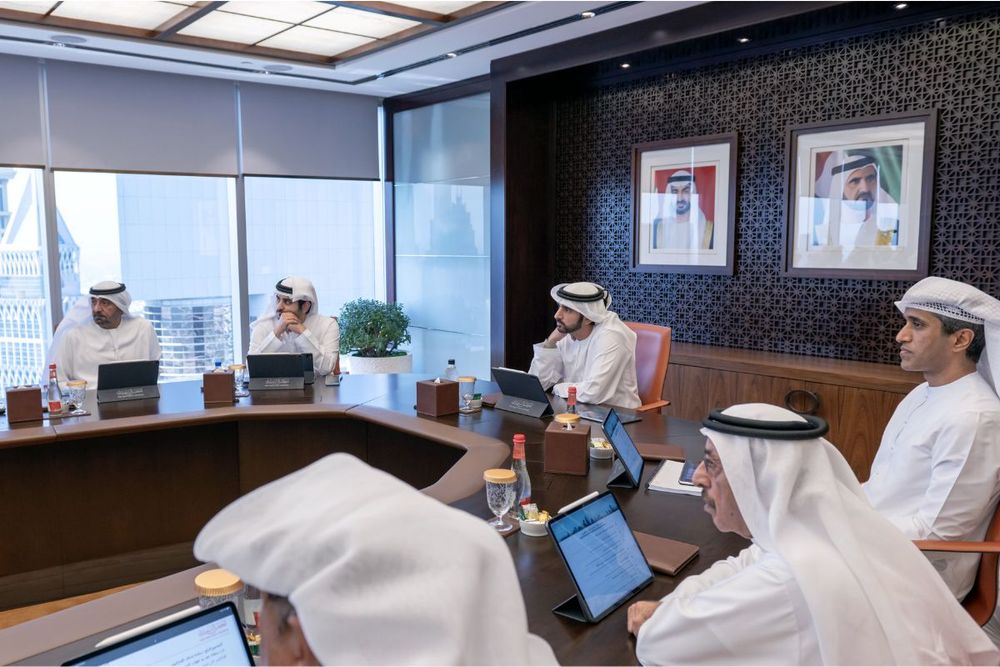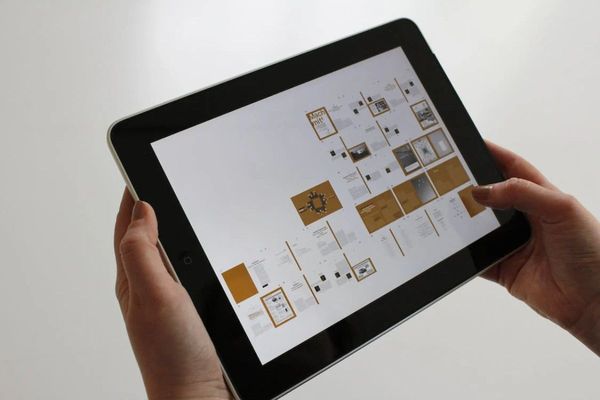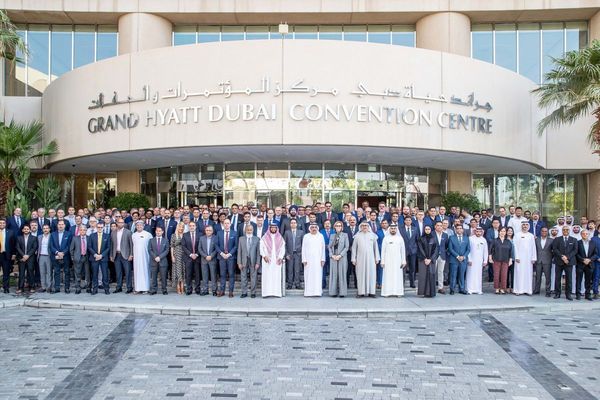H.H. Sheikh Hamdan bin Mohammed bin Rashid Al Maktoum, Crown Prince of Dubai and Chairman of The Executive Council of Dubai, confirmed that under the directives of Vice President and Prime Minister of the UAE and Ruler of Dubai His Highness Sheikh Mohammed bin Rashid Al Maktoum, Dubai has created a roadmap to make public transport in the emirate emission-free by 2050.
The move, which is in line with the UAE’s commitment to climate action, consolidates the nation’s emergence as a leader in the use of renewable energy, and a pioneer in the transition towards a green economy.
H.H. said:
“Humanity expects each of us to contribute to saving the future. The UAE spares no effort to be on the frontlines of preserving the sustainability of our planet’s resources. A series of green economy initiatives have led to Dubai becoming a role model for sustainability. Our initiatives for the future will help ensure that the UAE continues to set an example for the world in promoting innovation and creativity. We look forward to welcoming the world to COP 28 to be held at Expo City Dubai.”
Sheikh Hamdan bin Mohammed added:
“Mohammed bin Rashid’s directives are to tackle climate change from the frontlines. We will not compromise on the right of the coming generations to shape their own future. It is our duty to preserve resources for them and this requires us to work collectively to achieve this on the ground. We continue to implement green initiatives that have a positive environmental impact in order to mitigate climate change.”
The remarks were made during a meeting of The Executive Council held today (Wednesday) at the Emirates Towers in the presence of H.H. Sheikh Maktoum bin Mohammed bin Rashid Al Maktoum, Deputy Ruler of Dubai, and Deputy Prime Minister and Minister of Finance of the UAE. The roadmap, which was approved during the meeting, included the completion of the transition to zero-emission transportation in Dubai by 2050. Policies for licensing early-education centres in Dubai, and activating and stimulating Non-Profit Organisations in the emirate were also approved.
Zero-emission transportation
Dubai is making steady progress in achieving its objective to reduce carbon emissions in the emirate by implementing its Clean Energy Strategy 2050. It is also aligned with the Energy and Water Demand Management Strategy 2030, and the Dubai Green Mobility Strategy 2030, part of an integrated approach that ensures the participation of all local sectors in achieving the goals of the UAE Net Zero by 2050 Strategic Initiative. The landmark Net Zero pledge was made by the UAE during COP26 in the UK.
The roadmap for achieving the transition towards zero-emission public transport in Dubai by 2050 is based on a set of executive initiatives related to the infrastructure, the circular economy and green mobility, which will achieve the desired environmental impact by avoiding nearly 8 million tons of carbon dioxide emissions, the equivalent of planting 132 million trees. It also equates to financial savings of AED3 billion by 2050.
Under the initiative, which is a part of an integrated strategy to contribute to adapting to climate change and reducing greenhouse gas emissions, the deployment of clean energy vehicles will gradually increase. The Roads and Transport Authority will add electric and hydrogen vehicles to its fleet of public transportation buses, school transport, taxis and limousines. It will also rehabilitate the infrastructure and expand the use of clean energy to encompass buildings and facilities, in addition to recycling waste to support the circular economy.
The roadmap is in line with the UAE’s vision to transform climate change challenges into opportunities to advance economic diversification and achieve sustainable economic development by developing new industries, technologies, skills and jobs that support environmental protection and preservation. This will be achieved by striking a balance between putting in place sustainable development measures and reducing the impact of climate change by diversifying sources of income, building a knowledge economy, and shifting towards a green economy.
Early Learning
The Executive Council of Dubai also approved the policy for licensing early-learning institutions, which will contribute to enhancing Dubai’s attractiveness and competitiveness. It will be integrated with all government educational initiatives to encourage engagement at this important phase in children’s lives. Under the supervision of Dubai’s Knowledge and Human Development Authority (KHDA), the policy will operate through the incentives it provides in attracting experienced Emirati talent.
It will encourage investment in this sector, especially by local entrepreneurs and major international organisations in the field of early childhood. Its goals include improving services to meet global standards and responding to diverse family needs and expectations, in addition to strengthening social values among youth while achieving the highest levels of excellence in accordance with the best international standards in education.
The policy will take into account a number of objectives, including the promotion of the Arabic language, Islamic education and the national identity of Emirati children, improving the quality of education and care services, and enhancing family and community awareness.
Incentivising Non-Profit Organisations
The Executive Council also adopted a policy to incentivise Non-Profit Organisations in Dubai to support the enhancement of quality of life by activating the role of civil society in social development. The new policy will improve social services in the emirate through an integrated system of legislative frameworks, standards and initiatives to enhance continuous quality development. It will also direct the efforts of Non-Profit Organisations to achieve social development priorities and increase the efficiency of government resources that are allocated to the provision of social services.
The policy responds to the significant developments taking place in the Non-Profit Organisations sector – which includes licensed non-profit associations and institutions – and the sector’s vital role in Dubai with regard to education, society and healthcare. There are 257 organisations licensed by the Community Development Authority and other licensing authorities in Dubai.
The approved policy will also enhance social services across the emirate through an integrated system of legislative frameworks. The government will extend support to Non-Profit Organisations whose activities and objectives are in line with the emirate’s goals. They will be given priority in support and guidance, which will help them raise the quality of their outcomes.
News Source: Emirates News Agency









